Lynda V. Mapes · Seattle Times · February 17, 2025
Featuring multiple members of the Nature and Health Steering Committee and Research Collaborative
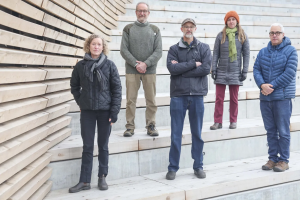
After President Donald Trump canceled a report on the state of nature in the United States, the scientists working on it — many from the Seattle area — say they’ll continue their work and build on it.
The report, announced by President Joe Biden during a visit to Seattle’s Seward Park on Earth Day in 2022, was intended to be the country’s first nationwide assessment of the state of nature.
In all, more than 150 scientists were at work on the assessment across the country — and they had nearly completed the first draft of their work. Then Phil Levin, professor of practice in the University of Washington College of the Environment, and the national director for the report, was informed shortly after Trump took office that the assessment was being terminated.

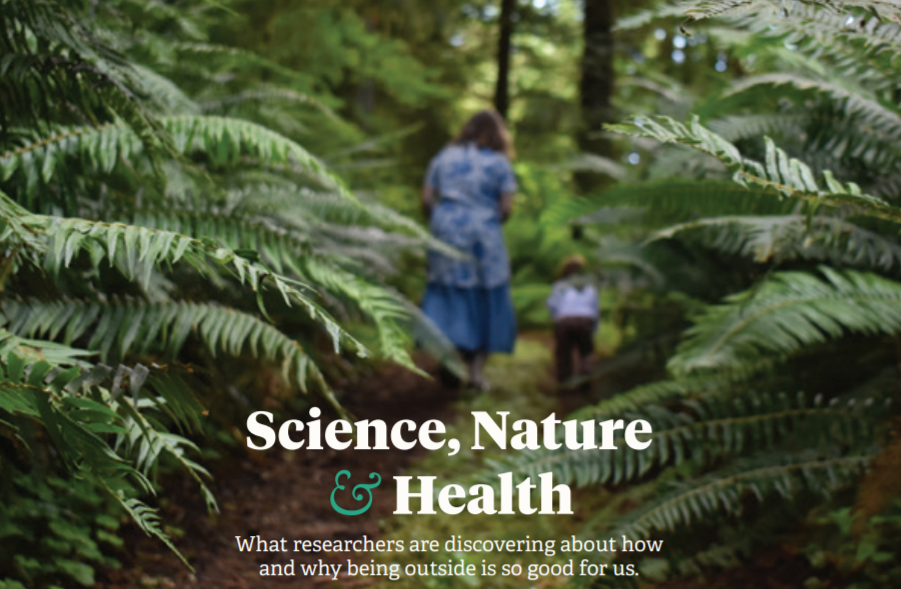 Time spent in nature is good for you. Whether you’ve known that consciously or not, it’s likely that the physical and mental benefits have played a role in why you get outside and hike. But there are plenty of questions about how much time or what type of nature gives people the greatest benefits. Thankfully, there is Nature and Health, an entire group of professors and students at the University of Washington dedicated to exploring these connections.
Time spent in nature is good for you. Whether you’ve known that consciously or not, it’s likely that the physical and mental benefits have played a role in why you get outside and hike. But there are plenty of questions about how much time or what type of nature gives people the greatest benefits. Thankfully, there is Nature and Health, an entire group of professors and students at the University of Washington dedicated to exploring these connections. 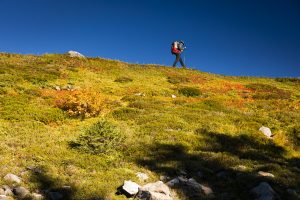 Time spent in nature is good for you. Whether you’ve known that consciously or not, it’s likely that the physical and mental benefits have played a role in why you get outside and hike. But there are plenty of questions about how much time or what type of nature gives people the greatest benefits. Thankfully, there is Nature and Health, an entire group of professors and students at the University of Washington dedicated to exploring these connections. WTA has been attending events and meetings with Nature and Health for several years, even presenting with GirlTrek and the U.S. Forest Service to other member organizations about our joint research. We talked with Josh Lawler, Nature and Health director and Denman Professor of Sustainable Resource Sciences, one of the group’s key organizers, to find out more about the group’s work and findings.
Time spent in nature is good for you. Whether you’ve known that consciously or not, it’s likely that the physical and mental benefits have played a role in why you get outside and hike. But there are plenty of questions about how much time or what type of nature gives people the greatest benefits. Thankfully, there is Nature and Health, an entire group of professors and students at the University of Washington dedicated to exploring these connections. WTA has been attending events and meetings with Nature and Health for several years, even presenting with GirlTrek and the U.S. Forest Service to other member organizations about our joint research. We talked with Josh Lawler, Nature and Health director and Denman Professor of Sustainable Resource Sciences, one of the group’s key organizers, to find out more about the group’s work and findings.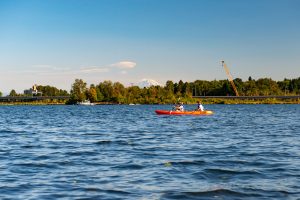 Research shows we’re spending more and more time cooped up indoors. According to the Environmental Protection Agency, Americans spend an average of 87% of their time inside buildings.
Research shows we’re spending more and more time cooped up indoors. According to the Environmental Protection Agency, Americans spend an average of 87% of their time inside buildings.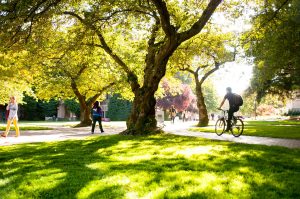 Fresh air, lush foliage, open space, and sunshine. Time spent outdoors isn’t just good for the soul — research at UW EarthLab is showing it’s also good for the mind and body.
Fresh air, lush foliage, open space, and sunshine. Time spent outdoors isn’t just good for the soul — research at UW EarthLab is showing it’s also good for the mind and body.